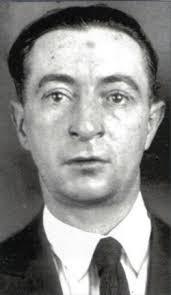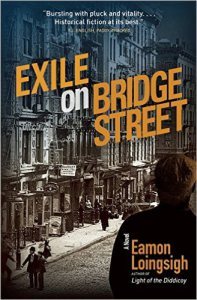Liam Garrity, Storyteller
Liam Garrity is the narrator of the Auld Irishtown trilogy. On his death bed, he is telling the story of his youth. Although the story takes place in the past, it is told in the traditional Irish oral method of present tense. Much of the story details his  direct experience with the violent longshoreman gang known as The White Hand during World War I era New York City. Woven within his personal accounts are stories and events he tells that are related to the many elements affecting his life at the time.
direct experience with the violent longshoreman gang known as The White Hand during World War I era New York City. Woven within his personal accounts are stories and events he tells that are related to the many elements affecting his life at the time.
In August of 1915, Garrity’s father witnesses the dramatic graveside speech of Patrick Pearse at the burial of Fenian rebel O’Donovan Rossa at Glasnevin Cemetery. Knowing that a rebellion is at hand (his father is a Volunteer) fourteen year-old Liam is sent to work with his uncle (a union longshoreman) in Brooklyn.
(Listen to The Story of Irishtown)

The original cover of Light of the Diddicoy featured Liam on it.
Born William James Garrihy, his last name was mistakenly changed at Ellis Island to Garrity. In fact, at one point he shows frustration at all the different names he has in Brooklyn, a metaphor for his coming of age. He is called Liam, William, kid, Muck and Poe, at various times in the books. Also, everyone in Irishtown is known as “Patrick Kelly,” a moniker used when outsiders want to know a gang member’s names.
Liam has a stable personality in a morally upside down world. He is genuine, thoughtful, has a great sense of humility, but is swept up in the violence of his time. Not until the Easter Rising occurs in April of 1916 does he realize that he must get his mother and sisters out of Ireland before British soldiers come to his family’s farm.
Like so many of the Irish diaspora, he is torn between returning home to fight for his country’s freedom, and starting a new life abroad. Because of the ongoing world war however, it is impossible for him to return. His only chance to get his mother and sisters to New York, both logistically and financially, is to join the gang, who control labor and since getting work is so difficult.
But Dinny Meehan, leader of The White Hand, does not give favor freely. Liam must pay, not in money though. In blood.
Along the way, Garrity describes the many pressures put on a gang that has outlived

William “Wild Bill” Lovett
its time. The violent enforcement of the ancient Irish Code of Silence that still exists in 1910s Irishtown has affectively kept outsiders out. But change is coming, as it always does to New York City.
Many want control of the bountiful waterfront docks of Brooklyn including the industrial businesses, Italians from South Brooklyn and the longshoremen’s union. Anglo-American law is also inherently opposed to gang rule. But most importantly, Liam sees the traitor in the gang’s midst, “Wild Bill” Lovett, who longs for Meehan’s seat of power above the Dock Loaders’ Club overlooking the Manhattan Bridge and the city’s skyline.
As a teenager, Garrity is unsure of his future. Primarily concerned with surviving and getting his family to New York, his own aspirations are set aside. But when he meets The Gas Drip  Bard, he realizes then that he will tell this story. But because of the terrible things he was forced to do, he does not want it told until twenty years after his death.
Bard, he realizes then that he will tell this story. But because of the terrible things he was forced to do, he does not want it told until twenty years after his death.
His story was begun in 2014 with the release of Light of the Diddicoy. Fall of 2016 it conti nues with Exile on Bridge Street.
nues with Exile on Bridge Street.





